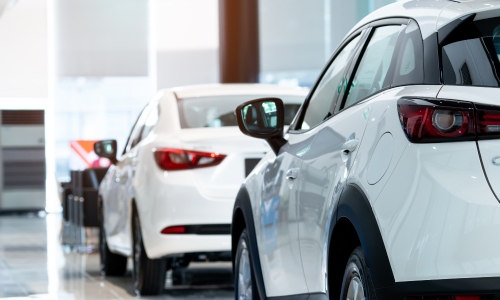Electric vehicles (or EVs) had received a big boost off the heels of the pandemic as consumer interest over environmental issues coupled with hearty government subsidies helped fuel a respectable boom in the market. However, according to new research from a Parks Associates consumer study, it seems that EV sales boom has slowed to the point of flattening.
After sending out a survey to 8,000 U.S. internet households, Parks Associates found that electric vehicle has regressed to just about 5% of respondents reporting ownership. If applied to the U.S. population, that would mean roughly six million households currently own an EV.
Familiarity with EVs had been steadily increasing with the leadup to the pandemic with popular EV brand Tesla being largely the face of the category. However, the ensuing economic woes facing the U.S. combined with EVs high price point and lack of supporting infrastructure has significantly stalled sales.
Electric Vehicles (EV) Rise to Popularity Met with Poor Economic Timing
While electric vehicles already start off as being more expensive up front compared to combustion vehicles, the lack of reliable public charging stations often necessitates the installation of private charging stations at home, further adding to the potential cost of owning an EV out the gate (though it’s not necessary, just more convenient).
High interest rates have also slammed EV manufacturers, who themselves are more sensitive to rate increases and economic downturns as in current times, EVs are often seen as more of a luxury purchase by consumers. Failure to scale and a greater saturation of the market is also another core issue impacting profitability off of EV sales.
According to Parks Associates, the recent bankruptcy filing in June 2024 by Fisker comes as a result of the broader challenges faced by manufacturers as they navigate an increasingly competitive and economically volatile market.
“Inflation and interest rates are up, and consumers perceive electric vehicles as expensive, challenging to charge outside the home, and limited in range,” said Daniel Holcomb, Senior Analyst, Parks Associates.
“With many car manufacturers scaling back ambitions on EV production, familiarity has dropped to 19%, a low not seen since 2018. At the same time, current EV and hybrid owners, among the most affluent consumer segments, have the highest purchase intentions to buy an EV, which indicates a relatively flat growth rate for the near future.”
Charging Station Woes Remain Major Stopper to EV Sales
According to the Parks Associates study, the breakdown of EV interest is as follows:
- 22% of EV owners plan to buy an EV again
- 14% of hybrid owners plan to buy an EV, but that segment is more likely to buy a hybrid
- Just 3% of internal combustion engine owners plan to buy an EV
While prior studies showed EV owners largely remaining undeterred in the face of these issues, this new research by Parks Associates seems to show that the combined headaches of cost and lack of infrastructure is finally starting to wear on owners, thereby impacting sales.
“Our research shows key inhibitors are the perceived cost and lack of charging stations — 65% of consumers shopping for a vehicle cite at least one of three charging-related factors as a reason not to buy an EV,” Holcomb continued.
Could Home EV Chargers Help?
In talking with CE Pro last year, proponents noted that rather than be a hinderance, a lack of public infrastructure would instead be a boon for the (at the time) nascent smart energy market. The theory was that instead of relying on public charging stations, owners would instead seek to charge EVs at home.
While certainly a solid answer to having to fill up during the usual morning commute, the assumption there is that the cars are largely being driven within range. According to the Department of Energy, the range of an electric vehicle can vary anywhere from 110 to over 300 miles, however, these ratings have largely come into question, especially when it gets cold.
For many Americans, using a home charger to drive to and from work makes a lot of sense, and has largely been one of the most enticing parts about owning an EV. However, the bigger issue kicks in when long-distance travel comes into play, and it’s something that affects the higher range models as well. The idea of taking a stress-free road trip in an EV may not be the case when trying to search for a route that puts you near a charger.
This isn’t to say toss out your aspirations of selling chargers to your customers with EVs. If a client owns an EV they’re most certainly going to want a home charger if they don’t have one already for many of the reasons listed above. All I’m saying is that EV sales may yet bring on that home energy boom like we were expecting them to.
If you’re interested in learning more about study, the research is available for purchase from Parks Associates with a special 20% discount available until July 31. Use the discount code EV-20P-2024 on checkout to secure the discount offer.
Additionally, to schedule an interview or to request data, readers can contact Mindi Sue Sternblitz-Rubenstein at [email protected] or 972-490-1113.







